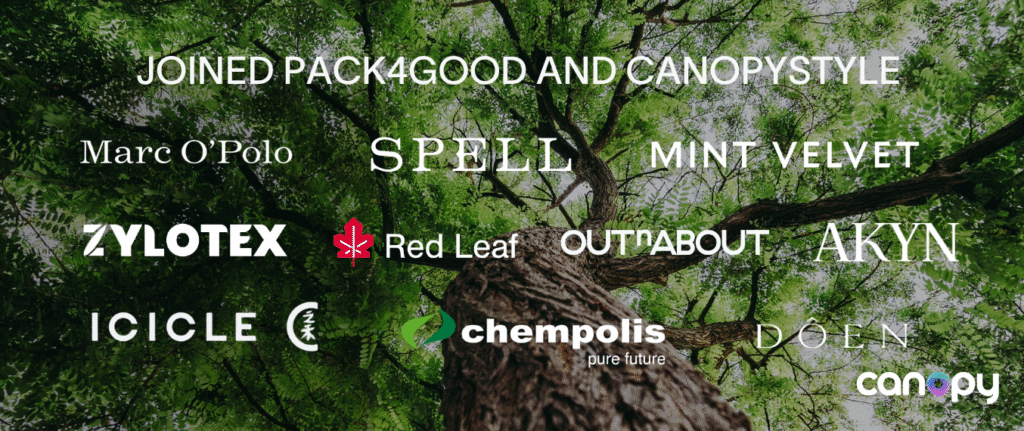
Solutions-focused environmental non-profit Canopy has added eight companies to its Pack4Good and CanopyStyle programmes. The brands are Marc O’Polo, Victoria’s Secret & Co., Akyn, Mint Velvet, Spell, OUTnABOUT, DÔEN, and ICICLE, all of which operate in the fashion and lifestyle space and use paper packaging and man-made cellulosic fibre (MMCF) textiles such as rayon and viscose.
By joining, these companies commit to phasing out fibre sourced from Ancient and Endangered Forests in both their paper packaging and MMCF-based textile supply chains. The brands will also work on policies and sourcing plans aligned with Canopy’s guidelines, and will report on progress as part of the initiatives’ monitoring framework.
Why This Matters For Textiles And Packaging
Demand for paper-based delivery boxes, gift boxes, and other packaging formats, as well as MMCF textiles, is rising quickly with the growth of fashion e-commerce and alternative fibres to polyester and cotton. Canopy estimates that around three billion trees are cut down each year for paper packaging alone, and a significant share of this logging happens in the world’s remaining Ancient and Endangered Forests.
These ecosystems are crucial for climate stability and biodiversity, which is why Canopy frames forest protection as one of the fastest and most cost-effective climate solutions available to industry. For textile and packaging value chains, dependence on vulnerable forest regions also creates long-term supply risk and exposure to tighter deforestation regulations in key markets.
Next Gen Fibre And Material Shift
Through Pack4Good and CanopyStyle, participating brands are encouraged to shift towards so‑called Next Gen solutions, such as packaging derived from agricultural residues like wheat straw and textiles made from recycled inputs instead of virgin wood pulp. These alternatives are designed to cut pressure on primary forests while simultaneously reducing waste volumes and pollution from traditional material streams.
In addition to the eight brands, the latest announcement also highlights three innovation-focused companies — Red Leaf, Zylotex and Chempolis — which are developing and supplying these new-generation materials for packaging and MMCF applications. This combination of brand commitments and upstream innovation is positioned as essential for scaling lower-impact options across the textile and packaging sectors.
Scale Of The Initiatives
With the new signatories, the CanopyStyle initiative now counts 590 participating brands, representing more than 2 trillion US dollars in combined annual revenue. Pack4Good has reached 480 brand partners with collective revenues above 403 billion US dollars, reflecting growing pressure on the wider fashion and lifestyle industry to address deforestation risks in both textiles and packaging.
According to Canopy, the broader portfolio of its forest-focused programmes now covers hundreds of companies across fashion, publishing, retail and e‑commerce that have pledged to remove fibre from Ancient and Endangered Forests from their supply chains. For the textile industry, the latest additions underline that forest-free MMCF sourcing and lower-impact packaging are rapidly moving from niche commitments to mainstream expectations.
